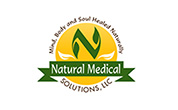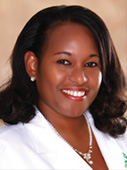Treatment for Child Behavioral Problems in Cobb, GA

Mental illness and associated behavioral issues are shockingly common among children; the Surgeon General estimates that 20% of children suffer from some mental illness. However with all the mental health conditions out there it can be difficult or nearly impossible to determine if your child has a serious mental health/behavioral problem, or if it’s just “kids being kids.”
To try and make some sense out of the madness, here is a list of the five most prevalent childhood mental problems:
Anxiety disorders: Widely regarded as the most common mental issue facing children, anxiety disorders, including generalized anxiety disorder (GAD), social anxiety disorder (SAD), panic disorders, and several others, can stand in the way of a child’s day-to-day life.
Symptoms include of anxiety disorders include:
- Pervasive, excessive worry that is difficult to control
- Easily startled
- Difficulty concentrating
- Fatigue
- Muscle aches/muscle tension
- Headaches
- Insomnia
- Sweating
- Twitching/trembling
- Nausea
- Frequent need to urinate
- Hot flashes
- Shallow breathing/lightheadedness
Disruptive behavior disorders: Falling in behind anxiety are disruptive disorders, including oppositional defiant disorder (ODD), conduct disorder and the related condition, attention deficit disorder /attention deficit hyperactive disorder (ADD/ADHD). With these disorders, children tend to “act out,” and challenge authority.
Symptoms of disruptive behavior disorders include:
- Social isolation
- Lying
- Stealing
- Irritability
- Trouble concentrating
- Failure to comply with rules
- Memory issues
- False sense of grandiosity
- Low self-esteem
- Lack of empathy/remorse
Pervasive development disorders: Pervasive development disorders (PDD) may not be a widely used, familiar term, but you’ve probably heard of some conditions making up PDD: Autism, Asperger’s syndrome, childhood disintegrative disorder, and Rett’s syndrome. The defining characteristic of these disorders is a “removal” from daily life. Children who suffer from PDD might appear detached or set in their ways.
Symptoms of pervasive development disorders can include:
- Difficulty relating to others
- Social impairment
- Repetitive behaviors/movement
- Difficulty with change
- Displaying lack of interest/ aversion to physical contact
- Trouble communicating
- Echolalia (repeating words)
Eating disorders: The three main eating disorders are anorexia, bulimia and binge eating. Children (and adolescents) routinely develop eating disorders, especially girls. Often stemming from social pressures, eating disorders can co-exist (comorbidity) with, and stem from depression , anxiety, low self-worth/esteem, and substance abuse.
Symptoms of eating disorders typically include:
- Self-esteem linked too closely with weight
- Low or excess food intake
- Low weight/thin
- Purging behaviors (regurgitating food after meals)
- Binging behaviors (consuming abnormally large quantities of food in one sitting)
- Feelings of guilt or shame
- Secrecy about eating
Elimination disorders: Elimination disorders center around the elimination of waste. Encopresis and enuresis are two of the more common types of elimination disorder. Encopresis and enuresis are the frequent defecating or urinating (respectively) into/onto places other than a toilet.
Symptoms of elimination disorders often include:
- Deliberate/ unintentional soiling of clothing
- Fear of the toilet (in young children)
- Constipation
While these are five of the more common behavioral/psychological conditions involving children, many more exist. Treatment options do exist, including: psychotherapy, cognitive behavioral therapy, rational emotive behavioral therapy, medications, and counseling.
If you feel your child may have a mental health condition, seek the help, guidance, and support of a trained mental health professional. It’s for the health of your child and you.
Request more information about treatment for child behavioral problems today. Call (770) 674-6311 or contact Dr. Gail Ravello online.
Natural Medical Solutions Wellness Center
Address
1130 Upper Hembree Rd.Roswell, GA 30076
(770) 674-6311
www.natmedsol.com
Hours
Mon:
9:00 am - 4:00 pm
Tue:
9:00 am - 4:00 pm
Wed:
9:00 am - 4:00 pm
Thu:
10:00 am - 6:00 pm
Fri:
9:00 am - 2:00 pm
Sat:
9:00 am - 2:00 pm


